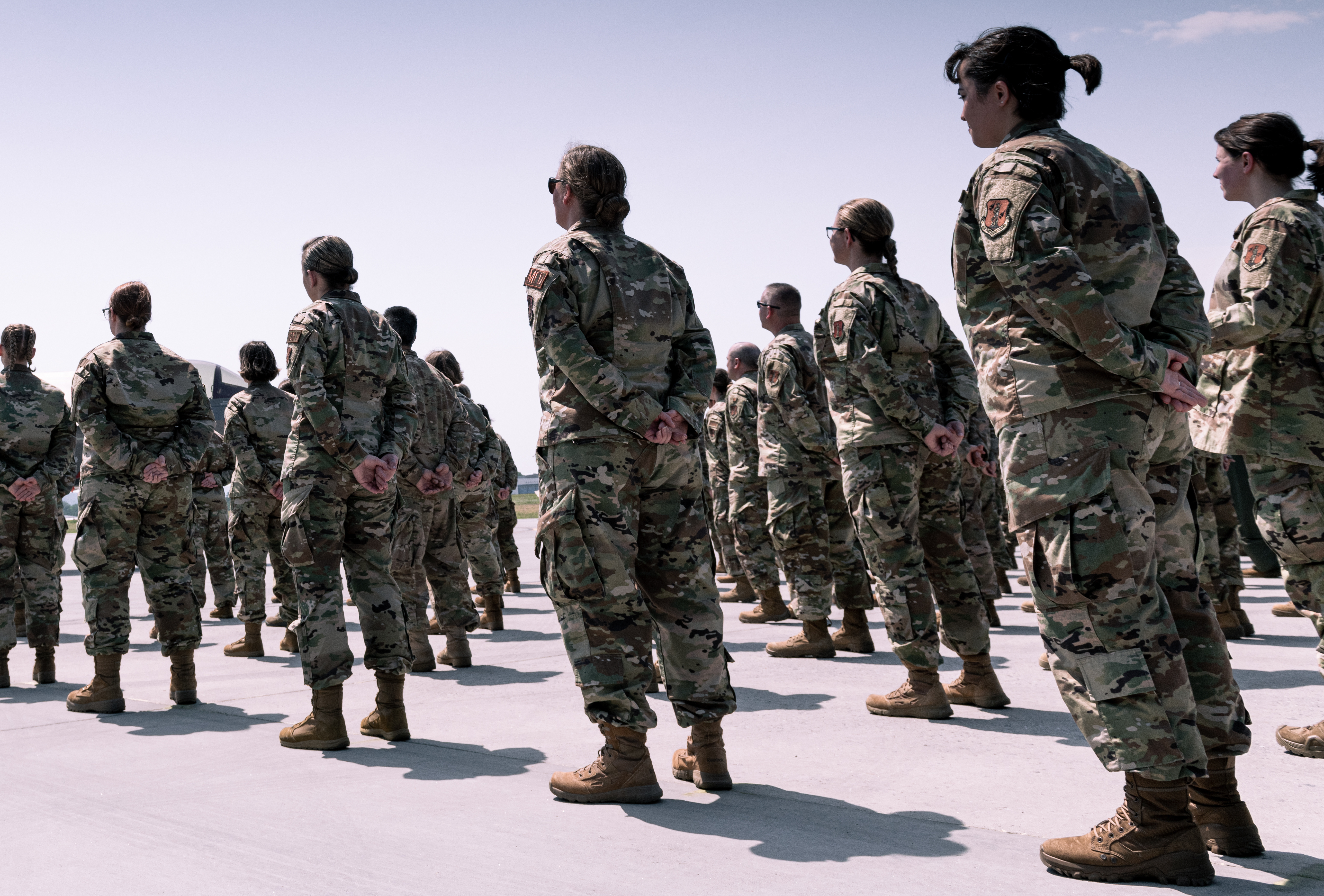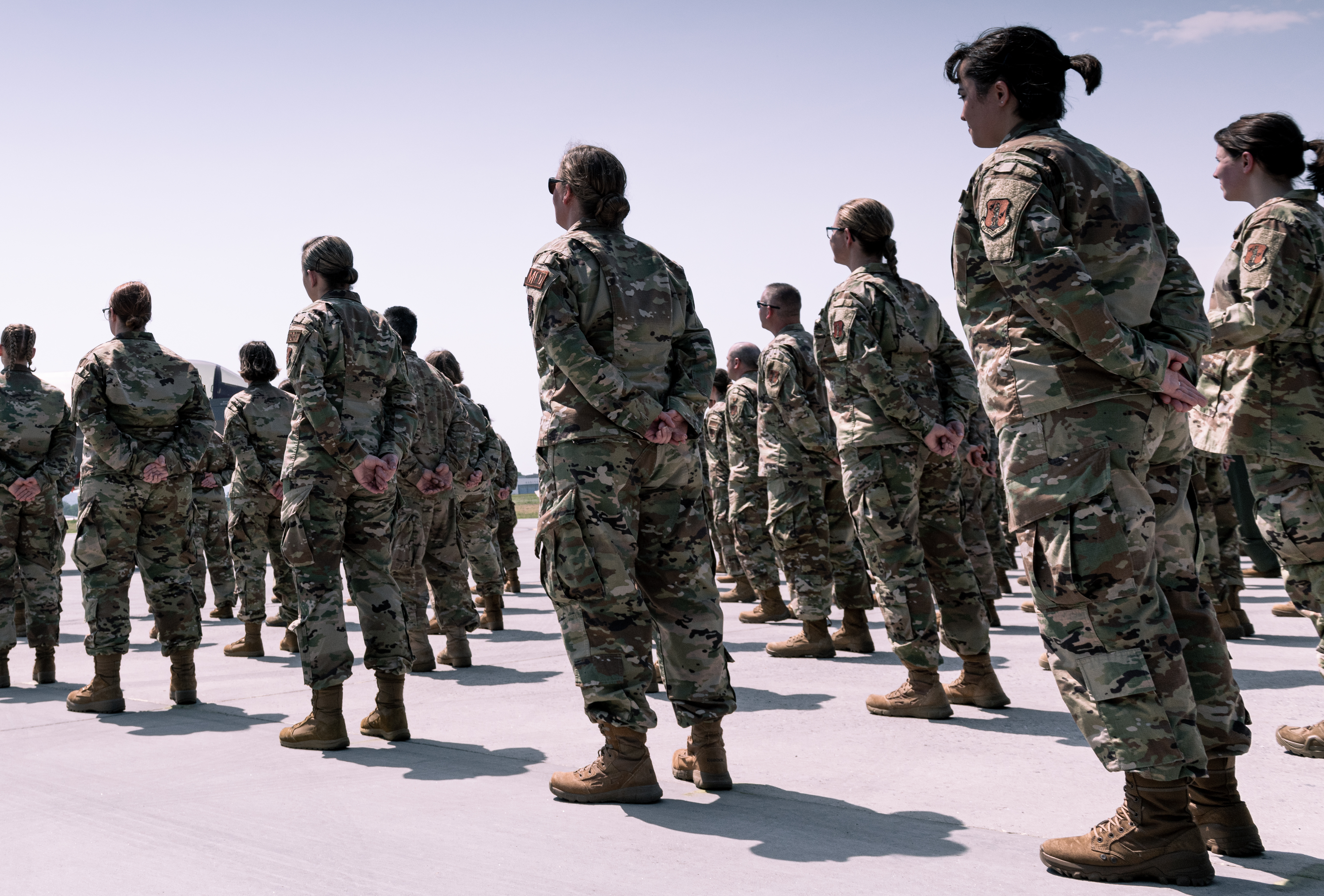

U.S. troops who were convicted under a now-defunct military law that targeted gay service members will receive formal pardons, the White House announced Wednesday.
“Today, I am righting an historic wrong by using my clemency authority to pardon many former service members who were convicted simply for being themselves,” President Joe Biden said in a statement. “Despite their courage and great sacrifice, thousands of LGBTQI+ service members were forced out of the military because of their sexual orientation or gender identity.”
The order, announced Wednesday, grants clemency to thousands of service members whose official military records reflect a conviction between 1951 and December 2013 under the Uniform Code of Military Justice’s Article 125. The former UCMJ article outlawed “unnatural carnal copulation” and “consensual sodomy,” language used for decades to prosecute gay military members.
Such convictions or other punishments under Article 125 can bar members from benefits even after they have left the military.
The language was repealed in 2013 after the Supreme Court declared that the prosecution of these cases was unconstitutional.
A senior administration official told reporters that they expected the pardon to impact thousands of discharged service members.
Once former service members apply for a “certificate of pardon” they can use it to “apply to have their discharge characterization changed with the relevant military branch,” a senior official said. For many, it “should unlock, down the road, access to critical benefits.”
The process to seek discharge upgrades will not change but officials said they are going to “take steps to try to make it as easy as possible for individuals to apply for it” by including instructions on the process with the pardon certificates.
Biden’s pardon will also apply to servicemembers who have died. Officials did not say whether former troops or their family members would be eligible to receive back pay for benefits they were shut out from because of their discharge. “It’s specific to the veteran,” an official told reporters.
Subscribe to Task & Purpose today. Get the latest military news and culture in your inbox daily.
The pardoning process focuses on Article 125 convictions but does not include other charges that may have been applied against gay troops, like conduct unbecoming.
“There is a separate process for individuals that fall into that category to go through the normal DOJ office of the pardon attorney process and we’re already doing work with DOJ to make sure that those applications, as they come in, are flagged and expedited,” a senior administration official said.
Biden said the pardon was about “dignity, decency, and ensuring the culture of our Armed Forces reflect the values that make us an exceptional nation.” He noted that some service members faced court-martials over Article 125 charges and “carried the burden of this great injustice for decades.”
History of discrimination
The Pentagon has come a long way in the acceptance of service members with different sexual orientations. The military’s official anti-LGBTQ stances date to WWII when the Armed Forces officially enacted a policy that “discharged homosexuals regardless of their behavior.” In 1981, the Defense Department released a policy stating that homosexuality was “incompatible with military service.”
Between 1980 and 1993, DOD officials found more than 19,000 service members who had been separated because of their sexual orientation.
In 1993, the Clinton Administration helped pass the law known as “Don’t Ask, Don’t Tell” which allowed gay and lesbian troops to serve in the military as long as they kept their sexual orientation private. By the time Congress finally repealed the law in 2010, thousands more had been discharged for their sexual orientation.
In September 2023, the Pentagon announced it would review nearly 2,000 discharges of service members who were separated under “Don’t Ask, Don’t Tell.”
Under the Biden Administration, progress in this realm has continued. Officials highlighted several policies and steps in recent years to protect LGBTQ+ service member interests like lifting the ban on open service of transgender service members, defending attacks on access to gender affirming health care, and implementing department wide diversity inclusion policies “explicitly for LGBTQI+ service members and civilian defense personnel.”
Officials said they’ll “continue to defend that work, even though as noted, it continues to be politicized.”
